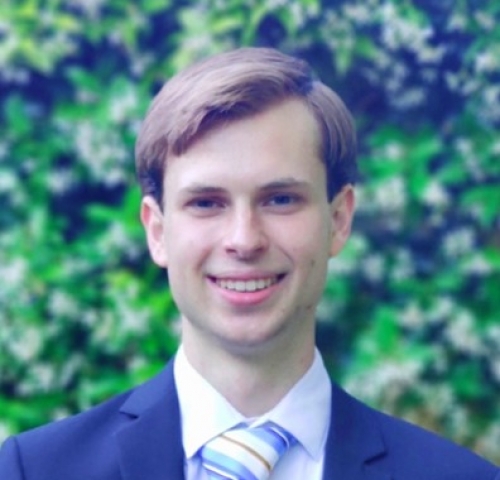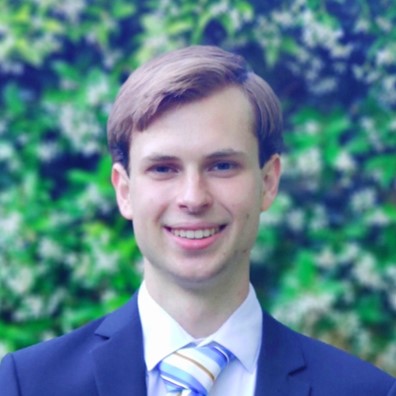
Michael Nefiodovas
University of Western Australia
I am a mathematics enthusiast with a passion for optimisation. I discovered my love for this field while studying at the University of Western Australia. Since then, I have been exploring different optimisation techniques and their applications. My current focus is on developing and implementing algorithms for inverse optimisation tasks. In the future, I hope to continue my research in this area and contribute to the development of more efficient and effective optimisation methods as well as explore exciting applications in drug discovery or environmental management. When I am not working on maths problems, I enjoy hanging out with friends, playing sport or reading.
Can you give me a quick rundown about the type of mathematics you are studying and its potential impacts for the broader community?
I study discrete and continuous optimisation, with a focus on optimal control and reinforcement learning. These mathematical techniques are used to find the best solutions to problems under certain constraints. My work has broad applications across many industries, such as transportation, healthcare, finance, manufacturing, and logistics. Optimisation techniques can help minimise traffic congestion, improve patient outcomes, manage risk, and maximise returns on investments. Ultimately, my studies aim to make significant contributions to society by improving outcomes and resource allocation in various fields.
How did you get into mathematics? Was there someone or something that inspired you into this field?
My interest in mathematics, statistics, and data science stemmed from two experiences that showed me just how important and challenging maths can be. When I first started learning about quantum computing, I quickly realised that the toughest parts were rooted in maths, particularly linear algebra. Later on, when I delved into machine learning, I encountered challenging concepts once again that were heavily based in maths.
These experiences made me appreciate the crucial role that maths plays in many fields, and I became inspired to pursue it as a subject of study. While I can’t pinpoint a single person or thing that inspired me, I find the challenges and complexities of maths to be motivating and exciting. There are so many potential applications of maths and data science that I’m eager to explore and contribute to.
You received a Travel Grant to attend AMSI Summer School 2023. How important was this in terms of your ability to attend, fully participate in the program and meet others studying in similar fields?
The Travel Grant I received to attend the AMSI Summer School 2023 was essential to my participation in the program and meeting others in the field. Living in Western Australia, attending the program in Melbourne would have been too costly without the grant. Staying in college with fellow students was an amazing experience, and the in-person interactions during the first two weeks helped me form connections and create a sense of community. Overall, the Travel Grant made attending the program possible and greatly enhanced my experience.
What was the most valuable part of the program for you?
For me, the most valuable part of the program was definitely the people. The community of students and lecturers was incredibly friendly and passionate about math, which made for a fantastic environment to learn and collaborate. While the course content was also top-notch, being able to work with others on challenging questions and problems was the best part of the program for me.
In the long-term, what do you think are the benefits of having attended Summer School?
Going to Summer School was a great decision for me, and it’s going to have long-term benefits. Because I got credit for my class, I can take one less unit during my honours, which means I can focus more on my thesis. That’s going to be super helpful in the long run. Plus, I made so many friends from all over Australia at the program, and that’s pretty awesome. I think having this network of friends who share my interests will be really beneficial for me both personally and professionally. All in all, it was a great experience, and I’m really glad I went.
Summer School included a special Careers Day program which aims to help give students an idea of the kinds of career paths available to maths graduates in industry and private sector research areas. Were you previously aware of the types of industry opportunities available to mathematical science graduates?
I found the Careers Day at Summer School to be really useful. I already knew a bit about the kinds of jobs math graduates could get, but the event showed me there are lots of different companies and industries looking for people like us. It helped me think about what kinds of careers I might be interested in, and I feel more confident about exploring different options after the program.
What advice would you give to someone who is considering applying for Summer School in 2024? Should they apply and why?
If you enjoy maths and want to challenge yourself, then I would definitely recommend applying for Summer School in 2024. The program offers top-notch classes taught by experts in their fields, so you’ll be learning from some of the best mathematicians in the country. But beyond the coursework, the program is also a great opportunity to connect with other maths enthusiasts and build your network. I’ve made some really great friends through Summer School, and I think that’s a big part of what makes the program so special. So, if you’re interested in maths and want to take your skills to the next level, I’d say go for it and apply!
Where do you want the mathematical sciences to take you? Where do you see yourself in five, ten years time?
Well, I hope the mathematical sciences will take me somewhere good, because I’m following them pretty closely! In five years, I see myself knee-deep in a PhD program, drowning in equations and coffee. But hopefully, I’ll be doing work that I’m passionate about and making some interesting discoveries along the way. And who knows? Maybe in ten years, I’ll be a world-renowned mathematician, solving the universe’s biggest problems over breakfast. Or maybe I’ll just be really good at maths trivia night at the local pub. Either way, I’m excited to see where the journey takes me!

